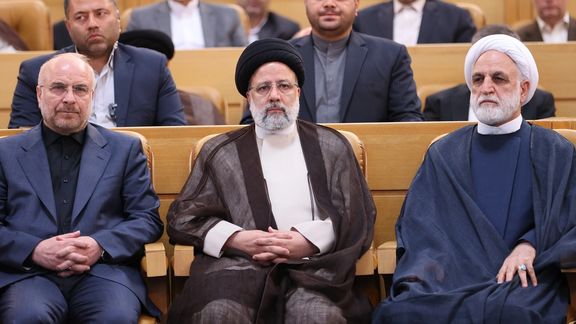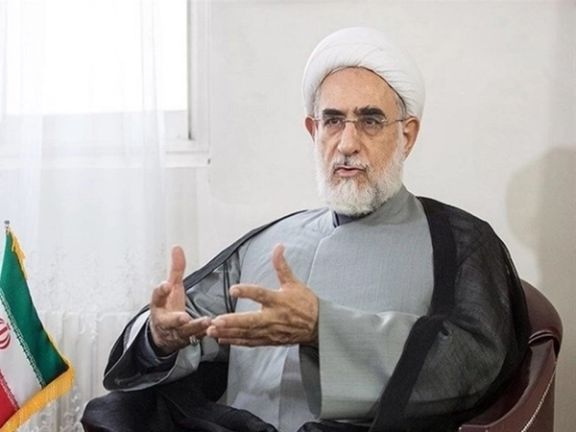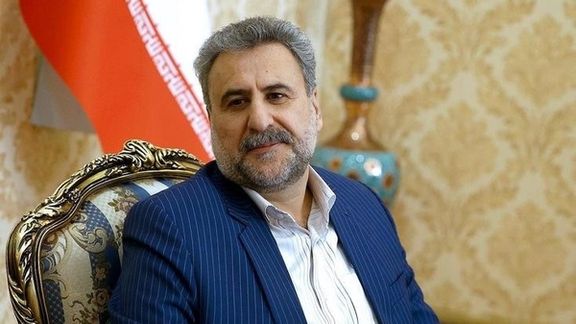Regime Insiders In Iran Intensify Attacks On Government

An increasing number of Iranian conservatives have joined reformist clerics and politicians, openly criticizing President Ebrahim Raisi and his government.

An increasing number of Iranian conservatives have joined reformist clerics and politicians, openly criticizing President Ebrahim Raisi and his government.
It appears that last year's protests in Iran have even shaken Supreme Leader Ali Khamenei's authority and some public figures inside Iran are less reluctant to hold him responsible for the country's problems.
Last week, a conservative member of parliament referred to Iran's leading clerics as "2-rial mullahs," using the smallest denomination of Iran's currency as a metaphor. Although some hardliners objected to the remark, the MP faced no consequences due to his affiliation with the country's intelligence community.
Meanwhile, two prominent Western-based Iranian political analysts, Mehdi Khalaji and Mehdi Mahdavi Azad said at a talk show on Iran International TV on Saturday that clerics including Khamenei have been losing their authority during the past months and the military and intelligence organizations are likely to replace Khamenei or to determine a weak successor to him once he is dead.
Rasoul Montajebnia, the Secretary General of reformist Jomhouriat Party said in an interview with Rouydad24 on Sunday, "The group of politicians who are in power in Iran will continue to defend the current situation even if it turns ten times worse than what we witness now." Motajebnia reiterated that the all-conservative government has dealt a hard blow to Iran's national interests.

He said as a result of the performance by officials in recent years, the people have come to believe they no longer can trust them and what they say, and this is rather worrying.
Montajebnia said, under the circumstances, a majority of the people either oppose the government, or protest its behavior, or try to be indifferent. He added that there are two major elections in March 2024 and the people need to make sure that these are competitive elections in which they can choose whoever they want for parliament and the Assembly of Experts.
Montajebnia further highlighted that successive governments over the past two decades have disappointed the people. Financial corruption cases and restrictions on people's power to choose their representatives have eroded trust in officials and rendered elections meaningless. Consequently, the regime's legitimacy is declining, and fewer people continue to support the government.
In another development, pointing out the division between the people and the government, the former chief of the Iranian parliament's national security and foreign policy committee Heshmatollah Falahatpisheh told reporters in Tehran that the fact ordinary young people are sent to defend the borders where many conscripts are killed in clashes with smugglers and opponents, while children of well-connected families often are exempt from military service, shows a high degree of discrimination.

Defending the government, hardline conservative politician and a member of the Islamic Coalition Party, Ahmad Karimi-Esfahani promised that "The government will gradually but slowly realize its potentials and the country's problems will be solved."
He then resorted to an outdated intimidating rhetoric and warned Iranians not to play into the hands of the enemies by criticizing the government. He added that the government hopes that prices will come down, while annual inflation is hovering between 70-120 percent, depending on who issues estimates.
Karimi-Esfahani added: "It is unfair to criticize the Raisi administration which is heir to a government that had made too many mistakes." He claimed that the Raisi administration has had major achievements that we cannot ignore.
His remarks contradict a chorus of harsh criticisms of the government from the early months of Raisi’s presidency.